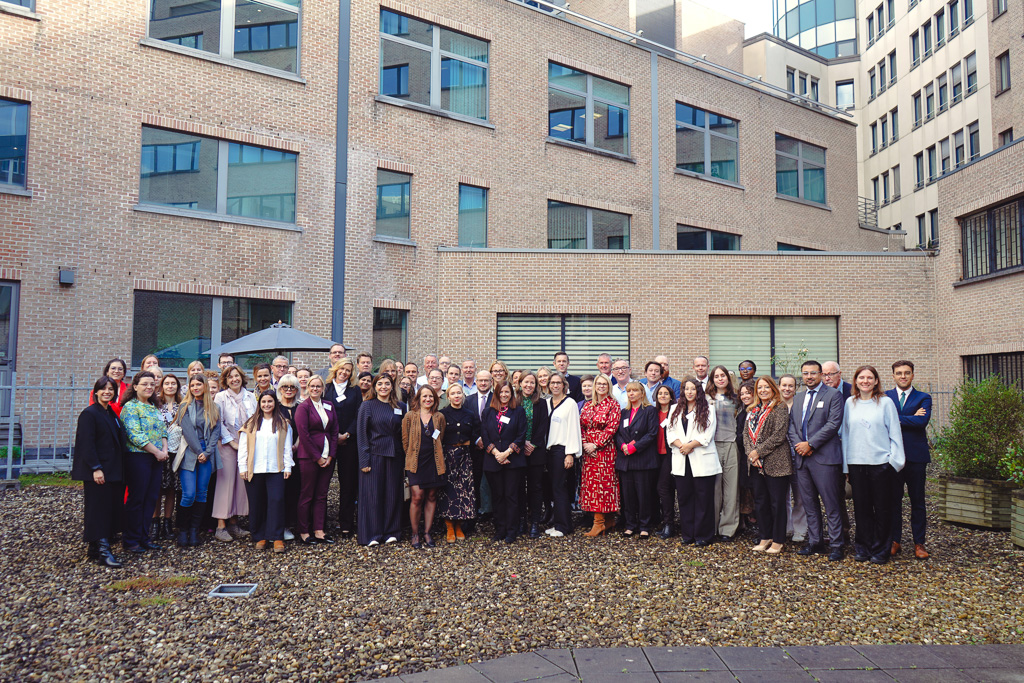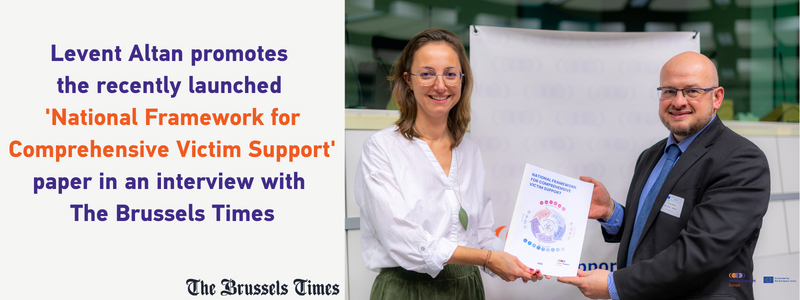Final Conference Marks the Culmination of the COVIS Project

On October 3, 2024, Victim Support Sweden, Victim Support Europe, COVIS partners, and participants came together for the milestone COVIS final conference, titled ‘Serving Justice – The Immeasurable Value of Court-Based Support’. Held at the Permanent Representation of Portugal to the European Union in Brussels, this event celebrated the conclusion of the two year COVIS (Court-based Victim and Witness Support) project, which focused on identifying best practices for supporting victims of crime during court proceedings. The project sought to enhance the experience of victims in the judicial process by ensuring they are treated with dignity, respect, and are provided with adequate support.
The event drew a diverse group of 80 in-person participants from across Europe, with additional participants tuning into our livestream. Among them were representatives from NGOs, legal experts, victims’ advocacy groups, and justice ministries. The conference disseminated best practices, highlighted successful strategies, and created a platform for stakeholders to collaborate on how to sustain and expand these practices.
Opening with welcoming words, Ambassador Pedro Costa Pereira set the stage for a successful day. ‘We must find meaningful answers to questions such as, how do our justice systems ensure that victims are effectively protected from secondary and repeat victimisation?’ Ambassador Pereira pondered. ‘The experience of victims in the justice system remains a point of concern.’
Following this intervention were welcoming words from Frida Wheldon, COVIS project manager, who helped to further shape an atmosphere of excitement at the upcoming programme. This was adequately followed by ‘A Witness Story – The Real Impact of Court-based Support’, where a witness, guided by Malin Bengtsson of Victim Support Sweden, shared her personal experience of being called to court, participating in a criminal justice proceeding and the vital role of the court based support she received in connection with the trial.
Katarzyna Janicka-Pawlowska, European Commission Coordinator for Victims’ Rights, then followed this with a crucial reflection on the EU Commission’s review of the Victims’ Rights Directive, particularly highlighting the new, and currently debated, right to support at court. Ensuing this was an intervention from Baroness Newlove of Warrington, Victims’ Commissioner of England and Wales, who shared her view of how participating in a criminal justice process impacts on victims´ and witnesses´ ability to provide their best evidence in court and their willingness to engage in future criminal justice processes. In a thought-provoking speech, Levent Altan of Victim Support Europe then explored the complex challenge of measuring justice from a victim’s perspective. He explored options on how the criminal justice process can provide safer spaces for victims, ensuring a fairer criminal justice process for all.
Following this was a dynamic first panel discussion where our panel of distinguished speakers explored the critical role court-based support has when aiming to achieve justice. Guided by moderator Katarzyna Janicka-Pawlowska, panellists emphasized that without adequate support, victims often experience court as an intimidating, even retraumatizing, process, which can undermine their confidence in the justice system. The discussion concluded with a consensus that justice cannot be fully realized unless victims are empowered, protected, and supported throughout the legal process, ensuring their voices are heard and respected.
Several critical interventions then followed. Angela Denning, CEO of the Irish Courts Service, explored the impact of court-buildings on victim’s right to protection and safety, underpinning the critical need for safer court spaces. Ensuing this was Doris Doni of the French Ministry of Justice, who presented the impressive French system of cooperation between state and NGO to ensure equal access to court-based support across France. Julia Korkman of HEUNI then explored the power of memory, highlighting its vital role and risk of being impacted by repeated questioning and long court delays. Closing up this section of the conference was Sara Landström, Psychology Professor from University of Göteborg, who traversed through the complex topic of trauma and its impact on victims’ ability to navigate and participate effectively in the criminal justice system.
In a reflective final panel discussion, moderated by Levent Altan of VSE, our esteemed panellists presented lessons learned from the COVIS project. The panel concluded that empowering victims by prioritizing their safety, emotional well-being, and dignity in court settings not only enhances justice outcomes but also fosters greater trust in the legal system.
Providing closing words, Frida Wheldon thanked all those present and contemplated the resounding success of the project. Finally, she proudly presented the COVIS Handbook of Best Practice for Court-Based Support, an essential handbook which outlines practical guidelines and recommendations for court-based supporters on their treatment of, and interaction with, victims and witnesses of crime in connections with criminal proceedings.
Victim Support Sweden, Victim Support Europe, and COVIS partners extend our sincere gratitude to all those who helped shaped the success of this critical project. We hope that its impact is felt for years to come, guiding us towards a safer, more compassionate justice system.
Recommend0 recommendationsPublished in Uncategorised


